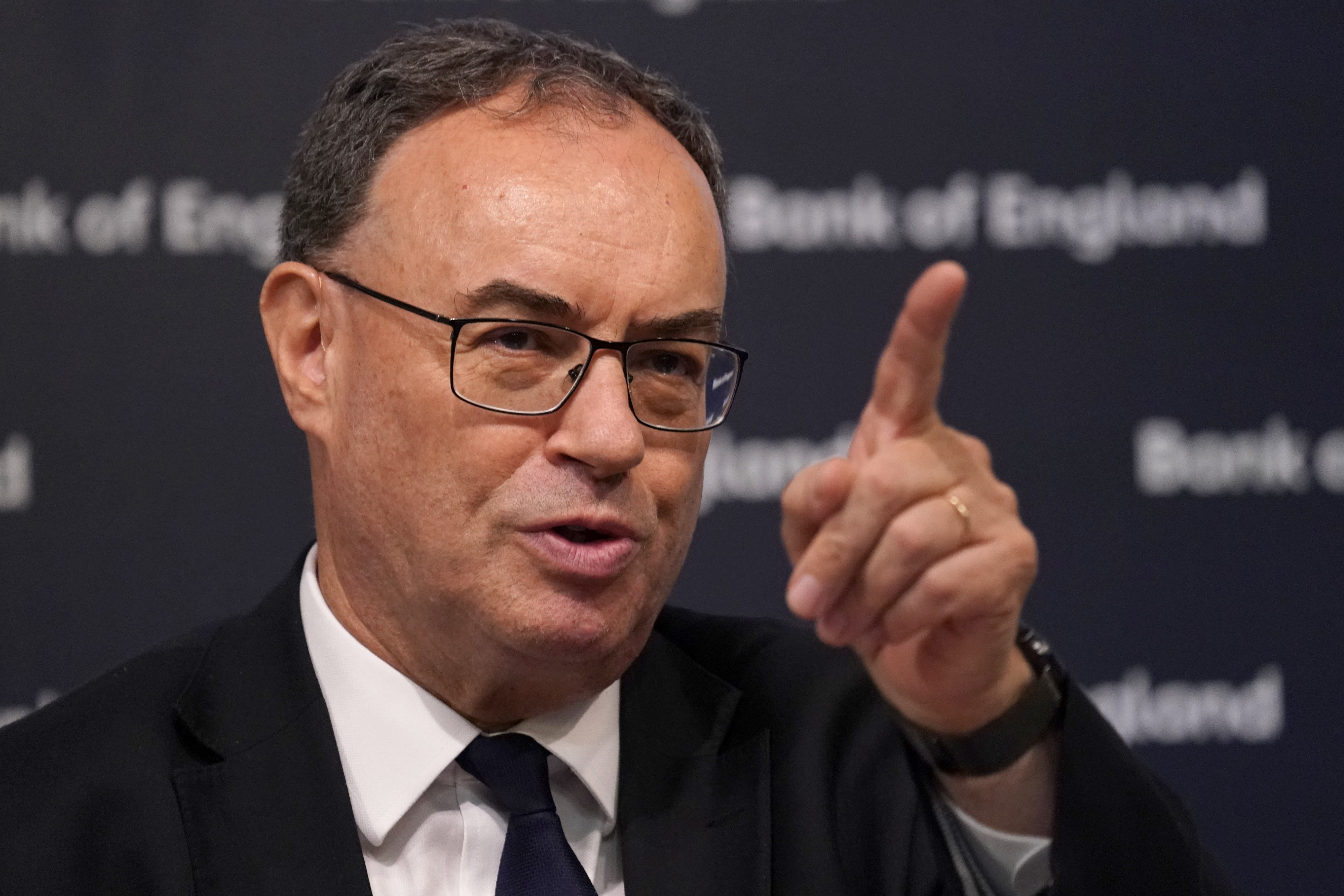Bank of England to chart ‘steady’ course on future rate cuts, says Bailey
Governor Andrew Bailey will say it is ‘too early to declare victory’ against inflation at the US Federal Reserve’s annual symposium on Friday.

Your support helps us to tell the story
From reproductive rights to climate change to Big Tech, The Independent is on the ground when the story is developing. Whether it's investigating the financials of Elon Musk's pro-Trump PAC or producing our latest documentary, 'The A Word', which shines a light on the American women fighting for reproductive rights, we know how important it is to parse out the facts from the messaging.
At such a critical moment in US history, we need reporters on the ground. Your donation allows us to keep sending journalists to speak to both sides of the story.
The Independent is trusted by Americans across the entire political spectrum. And unlike many other quality news outlets, we choose not to lock Americans out of our reporting and analysis with paywalls. We believe quality journalism should be available to everyone, paid for by those who can afford it.
Your support makes all the difference.Bank of England governor Andrew Bailey is set to signal more caution on potential future rate cuts at a speech on Friday, saying monetary policy will remain “steady” in the coming months.
Speaking at the US Federal Reserve’s annual symposium in Jackson Hole, Wyoming, Mr Bailey will say it is “too early to declare victory” against inflation.
He will say: “Recent experience leads me to be cautiously optimistic that inflation expectations are better anchored as a result of the regimes we have in place.
“The second round inflation effects appear to be smaller than we expected. But it is too early to declare victory.”
Mr Bailey will add: “In the UK case, the evidence suggests this may have worked insofar as we are seeing a lower level of inflation persistence than we expected a year ago.
“But, we need to be cautious because the job is not completed – we are not yet back to target on a sustained basis.
“Policy setting will need to remain restrictive for sufficiently long until the risks to inflation remaining sustainably around the 2% target in the medium term have dissipated further. The course will therefore be a steady one.”
It comes after Federal Reserve chairman Jerome Powell indicated that the Fed will cut rates in the US at its next meeting in September.
Mr Powell said: “The time has come for policy to adjust. The direction of travel is clear, and the timing and pace of rate cuts will depend on incoming data, the evolving outlook, and the balance of risks.”
The speech has given a firm signal of the Fed’s policy at its next meeting on 18 September, as Mr Powell said the battle has been won against inflation.
The two central bank chiefs are appearing after the Bank of England cut interest rates for the first time in four years earlier in August, reducing the base rate by a quarter point to 5%.
Mr Bailey will strike an optimistic tone over the Bank of England’s attempts to tackle inflation.
He will continue: “I think we are now seeing a revision down in our assessment of that intrinsic persistence, but this is not something we can take for granted.
“Important questions remain which in many ways set the framework through which we now view monetary policy.
“On current evidence, and speaking of the UK, I would say that the persistent element is still with us but it is smaller in magnitude now than we expected a year ago, and considerably smaller than the type of persistence that was seen in the 1970s.”